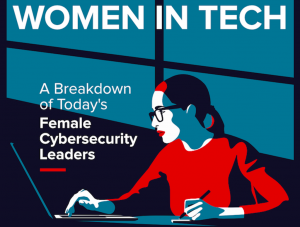Unconventional work arrangements, referring to employment arranged through various part-time, freelance or temporary jobs, short-term contracts and projects have become a commonality today. It differs entirely from the traditional 9-to-5 employment and has drastically become an important part of the economy.
Statistics show that contingent workers who did not opt for the standard full-time job made up 40.4% of the total workforce population in the US. These types of employment have been there for decades, however, the term ‘Gig Economy’ has come up with the advent of online marketplaces, apps, and smartphone technology. This concept has taken over the way we work, spend and search for employment.
What is the Gig Economy?
The term Gig Economy refers to both independent and freelance positions including those that are both technologically influenced and temporary. Some examples of Gig Economy jobs are working long distance as a freelance writer (such as at HandMadeWritings), working as an independent recruiter (through RecruitLoop!), obtaining money from renting AirBnB spaces or simply driving for Lyft or Uber.
Such jobs do not have the traditional terms and conditions and have little control over the payout. One massive advantage of such jobs is the immense flexibility of location and timings that they offer.
In theory, the workers in Gig economy have a special freedom to work as they choose. It may work for students and older people who could use some extra source of income. However, for others, it may mean insecure work, low pay and zero employment rights that come with a standard full-time job.
It is a fact that gigs have disrupted longstanding industries and have altered the relationship between the employer and the worker. The spreading of the gig economy across many other industries and its increasing prevalence has made the water muddier for the workplaces.
Experts claim that the gig economy has severely disturbed the conventional workplace and has also redefined workplace expectations of employees. According to the 15th yearly U.S. Employee Benefit Trends Study, released in 2017, the gig economy is coming across as a major threat to employers, with more than 51% of employees being more inclined towards freelance or contract work owing to more flexible hours, ability to be able to work from the comfort of home and having variety of projects. This is better for them in their opinion as compared to a full-time paid job that does not offer these perks.
Freelance work is most common in Millennials (64%), with Gen X (52%) and Boomers (41%). Reports suggest that almost 59% of the employers believe that a rapid increase in temporary jobs will negatively influence the standard workplace in the future 3-5 years.
How is the Gig Economy reshaping the workforce?
The following are the three main ways in which the gig economy has contributed towards redefining the workplace:
1. Increased focus on employee retention
The gig economy has caused employers to pay more attention towards retaining employees. Many employers today believe that retaining employees is more important as compared to increasing the productivity of employees and controlling welfare and health costs. Not only it is redefining the workplace but is also disrupting it. It is causing a change in employees’ definition of the corporate family and since certain demographics such as that of single mothers is changing, employers are expected to meet certain needs of the employees.
2. Importance of benefits customization
It brings us to the importance of benefits customization in retention of employees in the workplace. Since the employees have varying needs today, they must be provided with the capability of customizing their benefits. This is an advantage that non-traditional jobs provide them with and, hence, employees now look for something similar in their workplace.
Approximately 74% of employees interviewed said that having benefits which are customized to meet their needs was important while considering taking up a new job. Some even said that it would increase their loyalty to their potential or current employer.
In times when the Millenials tend to choose what coffee they take, create very personalized playlists and decide on their own which apps they wish to have on their phones, benefit customization remains important to them. Even the roles of employees in the workplace are being redefined as a result of the gig economy.
3. Preference for holistic wellness
Some working parents on the other hand also remain skeptical about gig economy jobs and how they have redefined the aura of the workplace. The ‘work-from-home’ concept is quite attractive, however, parents often worry that these do not provide the required stability in life and that these jobs do not have the standard benefits such as medical insurance.
As a result, those working in traditional workplaces wish for the employers to meet their holistic wellness needs even more than before. The employees are aware that they have other non-traditional employment options available, therefore, they are not ready to compromise on holistic wellness in a real workplace. If they are giving seven to eight hours of their day to a company, they expect to be returned with special plans and packages in the form of benefits.
Issues with non-traditional jobs and the gig economy
There are seven main issues which can be related to gig economy. Some ‘gig companies’ have been accused of exploiting their workers as there are no known employment laws for these workers and, hence, their rights and pay are compromised.
- In self-employment and gig work, there are no standard benefits like sick pay, pensions, parental leave or holiday entitlement.
- Gig workers tend to get paid on the basis of the job that they do. This means they normally earn less than the minimum hourly wage and have no financial security.
- This has a negative impact on the gig worker’s family time or social life as they have to remain ‘on-call’ all the time.
- As workers are disempowered with no financial security, minimum wages and no employment rights, the employers are busy getting rich.
- The gig workers cannot plan for their future as their jobs are not considered something that has a standing so it is difficult for them to get a mortgage or bank loan.
- There is less reliability involved regarding both the employer and the employee, hence, the payout is not always guaranteed and promised.
- Quality of the work may also be sometimes compromised as less professional workers arrive in the market.
However, it is just not that simple. With its downsides, the gig economy also has its upsides. For instance, in a standard 9-to-5 job, it is relatively impossible for a person to decide that he or she wishes to work three hours this week, 45 the next and take two weeks off straight-up after that. This freedom and autonomy is provided only to gig workers and this is why it is being valued by more and more people all over the globe.
Greg Ferenstein, a renowned researcher has even claimed that it is a myth that gig jobs are less secure. In his opinion, these jobs may start out as part-time wages but later elevated to full-time senior payouts. It might take up to five years but nonetheless does happen ultimately.
It is true that gig companies have disrupted the entire concept of what work is and how and where it takes place, yet it cannot be argued or denied that they do create new opportunities for those who cannot work in the standard jobs. Therefore, it is better that employers and employees both learn to embrace the opportunities provided by these gig jobs and recognize them as a mixed bag of ups and downs.





